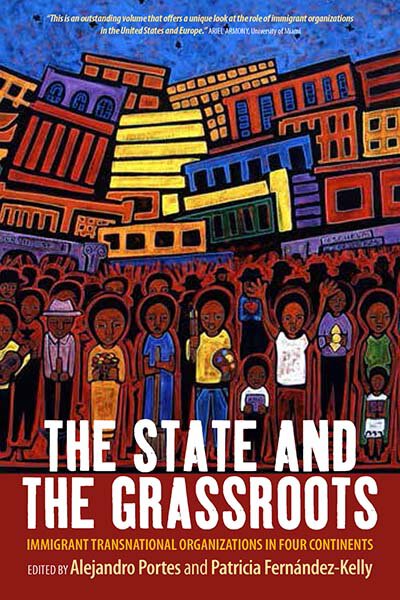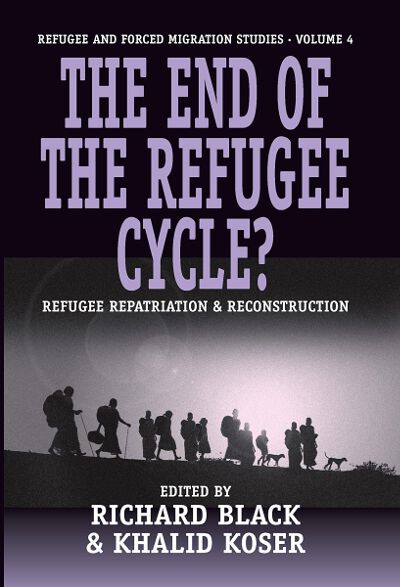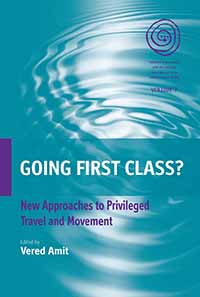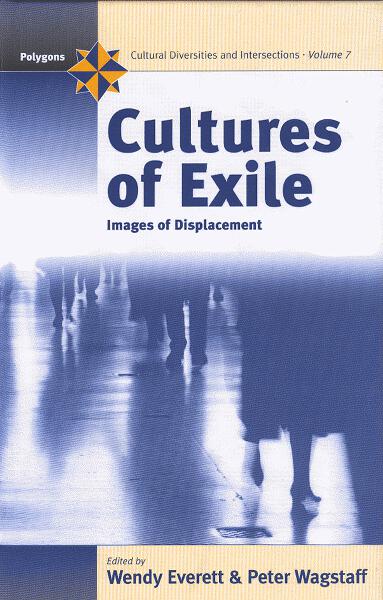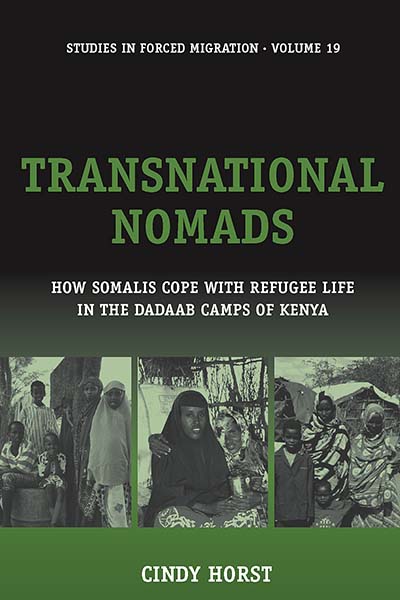
Series
Volume 19
Forced Migration
Email Newsletters
Sign up for our email newsletters to get customized updates on new Berghahn publications.
Transnational Nomads
How Somalis Cope with Refugee Life in the Dadaab Camps of Kenya
Cindy Horst
252 pages, 10 illus., bibliog., index
ISBN 978-1-84545-129-5 $135.00/£104.00 / Hb / Published (May 2006)
ISBN 978-1-84545-509-5 $34.95/£27.95 / Pb / Published (December 2007)
eISBN 978-0-85745-438-6 eBook
Reviews
A FORCED MIGRATION CURRENT AWARENESS BLOG BOOK OF THE DECADE
"Cindy Horst's, Transnational Nomads: How Somalis Cope with Refugee Life in the Dadaab Camps of Kenya (Berghahn Books, 2006) provides an excellent example of contemporary anthropology, mercifully free of the impenetrable post-modernism that now plagues this academic discipline. It is by far the best account of what has become known as a 'protracted refugee situation' and is especially incisive in analyzing the extensive social networks that link the apparently isolated residents of Dadaab to Somali communities in Nairobi and the wider world." · Jeff Crisp, The UN Refugee Agency
"…should be read by anybody who wants to work with or is currently working with refugees, not only Somali refugees but also refugee populations across the globe, and not only internally displaced populations but also those seeing refuge in another country." · African Affairs
"Another of the great strengths of Horst's book is the candour with which she discusses her research methodologies and attempts to solicit feedback from Somalis both in Dadaab and in the wider transnational community… Her transparent approach to discussing her research methods and attempts to invite critical reading of her work by Somalis in various locations make this an important contribution to literature on research methods that will be of use to students and scholars in the social sciences." · Journal of Refugee Studies, Laura Hammond, School of Oriental and African Studies, London
Description
There is a tendency to consider all refugees as 'vulnerable victims': an attitude reinforced by the stream of images depicting refugees living in abject conditions.
This groundbreaking study of Somalis in a Kenyan refugee camp reveals the inadequacy of such assumptions by describing the rich personal and social histories that refugees bring with them to the camps. The author focuses on the ways in which Somalis are able to adapt their 'nomadic' heritage in order to cope with camp life; a heritage that includes a high degree of mobility and strong social networks that reach beyond the confines of the camp as far as the U.S. and Europe.
Cindy Horst holds a PhD in Anthropology and completed a foundation year at the Refugee Studies Centre at Oxford University. She carried out extensive fieldwork amongst Somalis in Kenyan refugee camps and towns between 1995 and 2001 and in Europe and also worked for a refugee-assisting NGO. Cindy is Senior Researcher at the International Peace Research Institute, Oslo.

